Location: Webinar
Date: April 13 Time: 9:00 AM - 10:30 AM EST
Organizer: Evidence Consortium on Women’s Groups
In a policy brief released in the early stages of the COVID pandemic in June 2020, the Evidence Consortium on Women’s Groups (ECWG) examined the implications of the pandemic and the lockdown for women’s groups.
What have we learned since then? How has the COVID pandemic affected women’s groups, and how have these groups helped mitigate the negative consequences of the health crisis?
Join the ECWG on April 13 for a discussion on women’s groups and COVID, with the Africa Centre for Systematic Reviews, the American Institutes for Research, the Population Council, and the World Bank.
The ECWG will present the findings of two new reports on the impacts of COVID on women’s groups in India and sub-Saharan Africa, followed by a panel discussion on the implications and policy recommendations for development organizations and governments.
Moderator
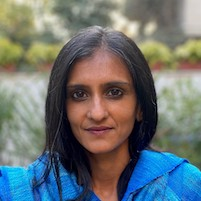
Sapna Desai
Associate, Population Council
Sapna Desai is an Associate at the Population Council in New Delhi, India. As co-principal investigator of the Evidence Consortium on Women’s Groups, she works on examining typologies and implementation processes associated with women’s groups in different settings, along with an evidence synthesis on the effects of integrated economic and health programs with women’s groups. She also co-leads a project to synthesize evidence, theory and field experience to develop mid-range theories on how women’s group improve health outcomes in India. Previously, Sapna worked with the Self-Employed Women’s Association (SEWA), India’s largest union of women workers in the informal economy, to scale up health interventions integrated with organizing, finance and livelihoods programs in rural and urban settings.
Speakers

Thomas de Hoop
Principal Economist, American Institutes for Research
Thomas de Hoop is a Principal Economic Researcher in the International Development Division at American Institutes for Research (AIR). He oversees a research and evaluation portfolio with a focus on the impact, scalability, and cost-effectiveness of self-help groups, savings groups, and education innovations in South Asia and sub-Saharan Africa. He is currently the co-principal investigator for the Evidence Consortium on Women’s Groups (ECWG), a four-year research project that focuses on synthesizing, strengthening, and disseminating research on the impact, and cost-effectiveness of self-help and savings groups. As part of the ECWG, Dr. de Hoop leads or co-leads studies on the impact of COVID-19 on the functioning of women’s groups and how SHGs in India and savings groups in Nigeria and Uganda contribute to mitigating the economic consequences of COVID-19. He is also the principal investigator for a three-year quasi-experimental study on the Nigeria for Women Project.
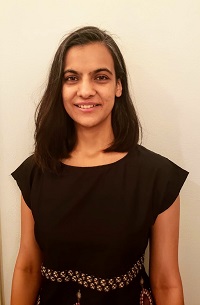
Garima Siwach
Senior Economic Researcher, American Institutes for Research
Garima Siwach is a Senior Economic Researcher at the American Institutes for Research where she specializes in research and evaluation of policies and programs specific to employment, education, and international development. She serves as the Project Director of the Evidence Consortium on Women’s Groups (ECWG) supported by the Bill & Melinda Gates Foundation, which focuses on synthesizing and strengthening research on women’s groups in India and East-Africa. As part of her role in the ECWG, she has authored studies on the costs and cost-effectiveness of Self-Help Groups (SHGs) in India, the implications of COVID-19 on SHG activities under the National Rural Livelihoods Mission (NRLM), and the role of women’s groups in providing resilience against COVID-19 in Nigeria. She also serves as the cost-effectiveness lead of the Nigeria for Women Project, and has previously worked as the director of rural initiatives with a microfinance organization in India where she designed livelihoods interventions for rural women and landless households.
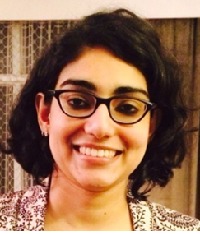
Rukmini Tankha
Consultant, Initiative for What Works to Advance Women and Girls in the Economy
Rukmini Tankha is a Consultant with the Initiative for What Works to Advance Women and Girls in the Economy (IWWAGE). She provides strategic support for system strengthening on gender to Government of India’s National Rural Livelihood Mission (NRLM), as part of IWWAGE’s partnership to institutionalise gender focus and outcomes within the programme. Rukmini has 13 years of experience in the development sector, during which she has been leading research, documentation and evidence generation on gender dimensions of large-scale social protection programmes in India, including NRLM and the Mahatma Gandhi National Rural Employment Guarantee Scheme (MGNREGS). Most recently she has authored reports highlighting the impact of COVID-19 on women and their collectives and the response of NRLM's self-help groups to the crisis. Prior to joining IWWAGE, she worked with UN Women, UNESCO and Terre des Hommes Foundation, and research and civil society organisations in India such as Institute for Human Development, Institute of Social Studies Trust and PRADAN. Her reports, papers and co-authored articles have been published by NRLM, UN Women, UNESCO and UNICEF and in the IDS Bulletin and Economic & Political Weekly.
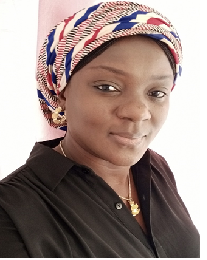
Fatima Maji
ICB Advisor, Nigeria for Women Project
Fatima Iliya Maji is a Development Specialist. She has worked with INGOs and has provided technical support in the design and implementation of initiatives centered on household economic strengthening, financial inclusion through the VSLA methodology, financial literacy, value chain development, nutrition, public and private partnerships. She has experience working on USAID, EU, DFID and World Bank funded projects. Fatima is currently the Institutional Capacity Building Advisor for the Nigeria for Women Project (NFWP) a five years project that aim to support Women’s improved livelihood opportunities in targeted states of Nigeria. Her core competencies include project management, women and youth empowerment, community mobilization, livelihood activities and VSLAs.

Benjamin Allen
Technical Advisor Microfinance Research, Catholic Relief Services
Benjamin S. Allen is the Technical Advisor for Microfinance Research and Learning at Catholic Relief Services (CRS), and in this capacity he leads and supports a variety of operational research for CRS’ Savings and Internal Lending Communities (SILC) programming. Dr. Allen’s work includes surveys of SILC groups’ responses to the COVID-19 pandemic in 18 countries in Africa and Latin America; studies of the effectiveness of CRS’ innovative SILC fee-for-service Private Service Provider (PSP) model in Madagascar, and of the agency’s Financial Education curriculum delivered to SILC members in Latin America; and a state-of-practice report on the inclusion of members of vulnerable populations in savings groups (published by the SEEP Network). A social scientist with extensive experience in international program and policy evaluation, Dr. Allen earned his Ph.D. in Political Science from the University of California, Berkeley, in 2015.
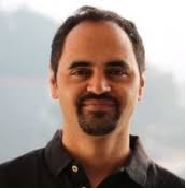
Ashutosh Raina
Social Development Specialist, World Bank
Ashutosh Raina is a Social Development Specialist at the World Bank. Based in Washington DC, Ashutosh works on community-driven development (CDD), local economic development (LED), and disruptive technologies for the social sector initiatives. He has experience in designing and implementing jobs and local economic development programs in South Asia, Africa, and Europe and Central Asia.
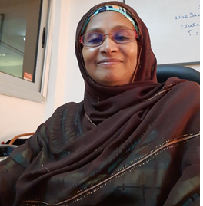
Dr. Fatma Zennou
"Women on the Move” Impact Growth Strategy Manager, CARE
Dr Fatma Zennou is the coordinator of the “Women on the Move” Impact Growth Strategy, an initiative that relies on savings groups as entry points for women's economic, social and political empowerment in West Africa. Fatma has over 20 years of experience working with organizations of savings groups in their evolution towards women's rights organizations through collective action for women's access to land, to health services, public participation, decision-making bodies and their role in ending child marriage, and gender-based violence.
As part of CARE's response to COVID 19, Fatma facilitates learning between members of savings groups in the different countries where CARE West Africa is present but also between staff, on the resilience capacity of the networks of savings groups, in particular their ability to take collective action to sustainably respond to COVID-19.
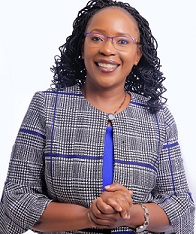
Dr. Eve Namisango
Senior Health Scientist, Africa Centre for Systematic Reviews and Knowledge Translation, School of Medicine, Makerere University
Dr Eve Namisango is a senior Health Scientist at the Africa Centre for Systematic Reviews and Knowledge Translation- School of Medicine- Makerere University. She is a Monitoring, Evaluation, Research and Analytics specialist and leads the Women’s Group work stream at the Centre. She is a co-investigator for the Evidence Consortium on Women’s Groups (ECWG), a four-year research project that focuses on synthesizing, strengthening, and disseminating research on the impact, and cost-effectiveness of self-help and savings groups. She has been co-investigator on evaluations of the No Means No and the DREAMS adolescent health groups programmes in Uganda and participated in the national social protection review initiatives.
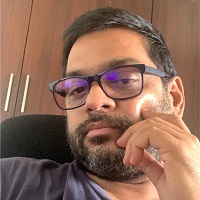
Samik Sundar Das
Senior Specialist, World Bank
Samik Das is a Senior Specialist at the World Bank. His experience spans 25 years of efforts to improve lives and livelihoods across continents. He promotes last mile delivery solutions, alternative pathways to create impact at scale, building institutional capability, youth power and women leadership. He specializes in working on operational solutions for rural space, across social, economic and environmental challenges through policy changes, capacity enhancement, community action, knowledge & technology infusion and facilitation services.